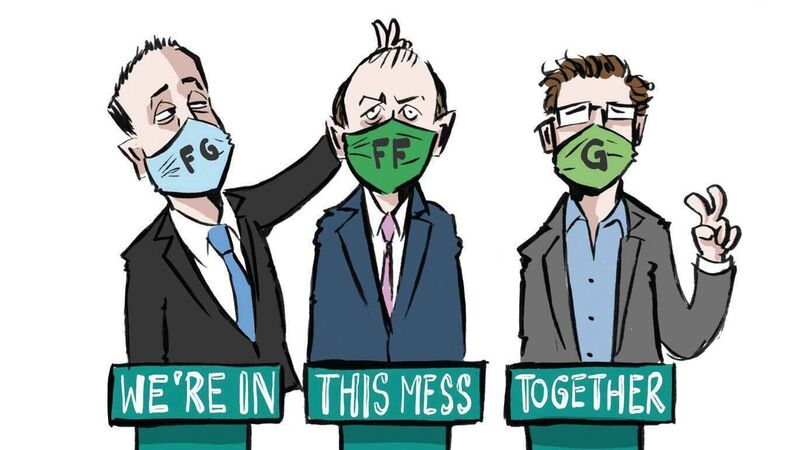Elaine Loughlin: An eventful first 100 days defined by Covid-19

An eventful first 100 days for the leaders of Fianna Fáil, Fine Gael and the Green Party together in their historic coalition. Picture: Harry Burton
A truce following a century of civil war politics was delivered after a momentous election. However, the government has met a fairly hostile reception, not helped by its own failings, writes











